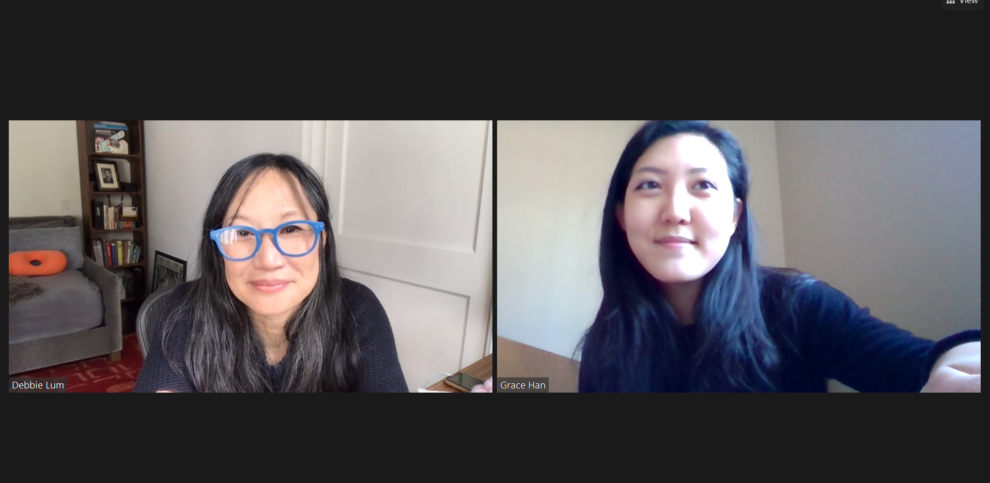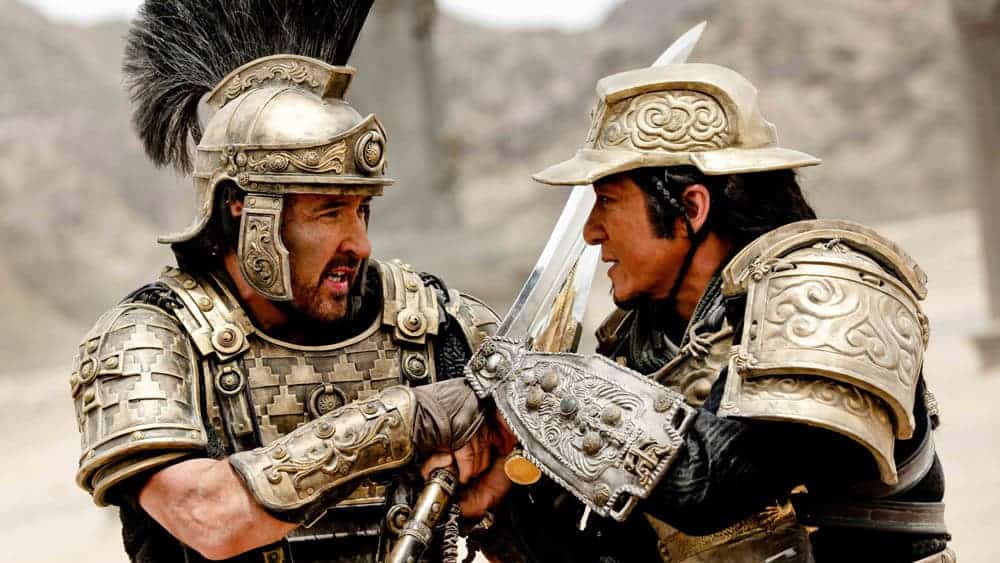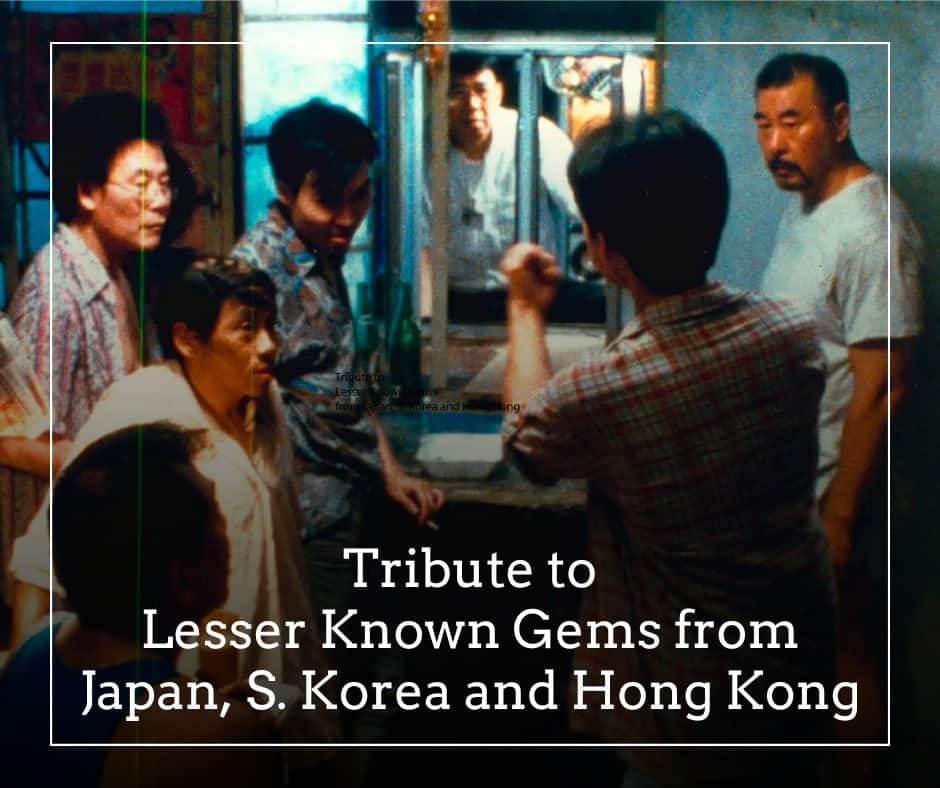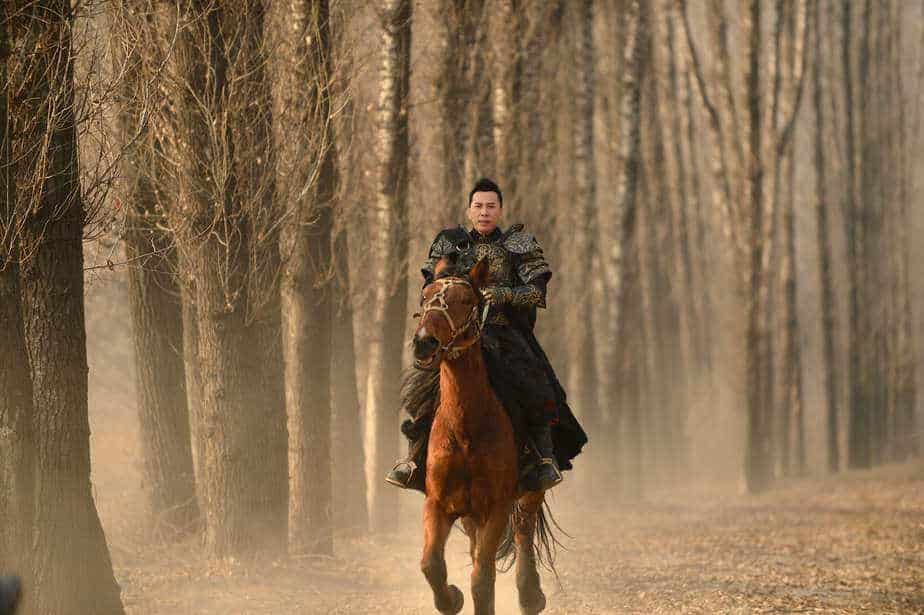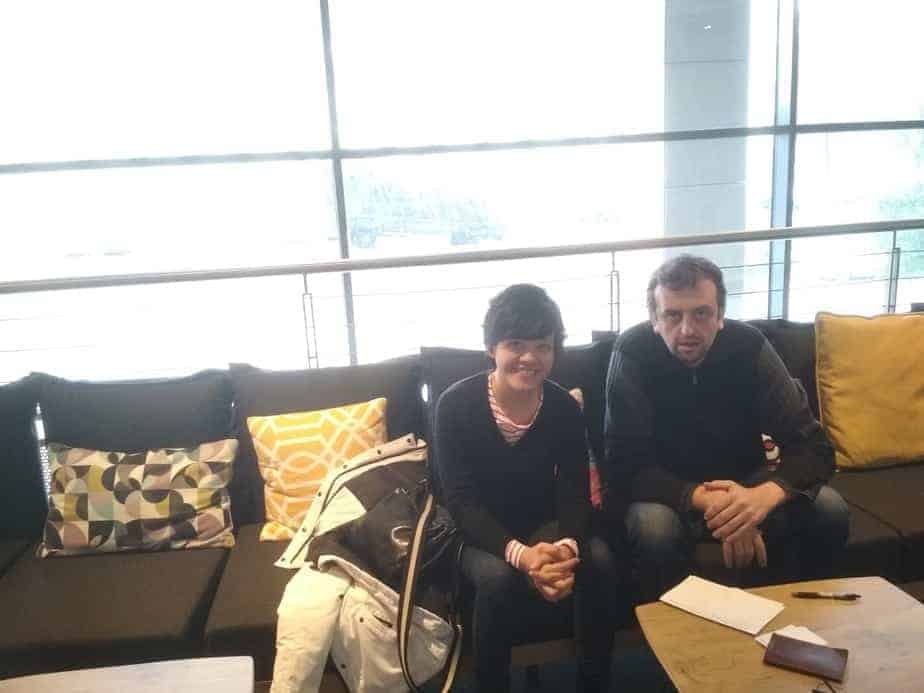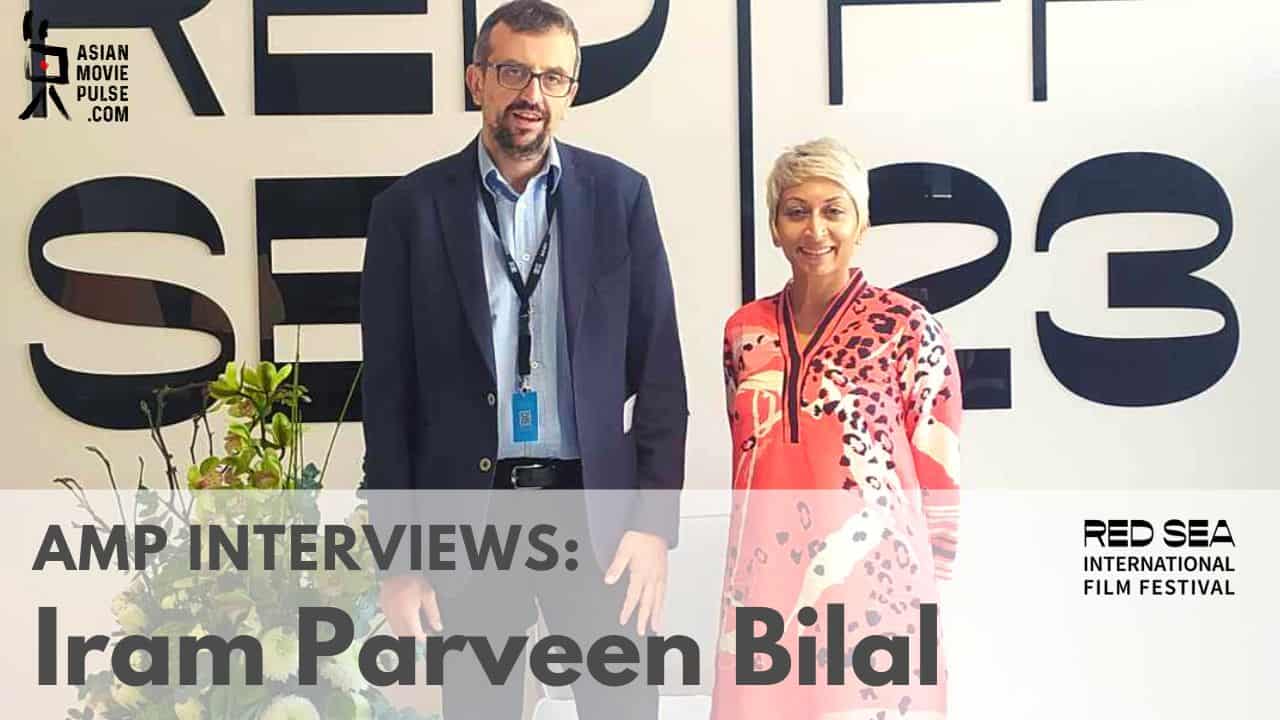Debbie Lum's heartfelt documentary “Try Harder!” follows the stories of four students at the prestigious Lowell High School, each of whom is extraordinarily talented — but faces immense pressure to enroll in a top-tier university. As these mostly Asian-American students struggle against corrosive stereotypes, Lum observes their resilience: academic, generational, but mental as well.
We first sat down with Lum over Zoom to discuss her entry in the Sundance US Documentary Competition, and now release this interview in time for its opening act at CAAMFest 2021 in mid-May. Lum is an open book; she tells us she has three kids, the eldest still far from high school. We hear the lowdown of what it takes to make a film about Asian-American students as an Asian-American mother, and discuss the mental health stakes of today's ultra-competitive high schools.
What was the inspiration behind “Try Harder!”?
Debbie Lum: My eldest was still in kindergarten when I first began to explore the phenomenon of the Tiger Mom stereotype. I was interested in what I like to call the “College Admissions Industrial Complex” — so I decided to do one chapter on the so-called “Tiger Cubs.” I knew about Lowell High School since it's an iconic public high school in San Francisco that has come to be associated with Asian-American kids. We figured it would be “Tiger Mom” Central, and we were right. (laughs) We started interviewing the students about their parents. Once we got to know the students, we fell in love with them and their stories — so we switched gears and decided to film their journey instead.

How did you choose which students to interview?
One of our main conduits was their physics teacher. Everyone said this was the hardest class at Lowell. [On the other hand,] we met Alvin on the first day that we visited. We knew immediately that we wanted to include him. We met so many students and I could have followed all of them, but we did follow more than we could include — so we had to reduce some of their storylines. We wanted to include them as this great chorus.
The film revolves around mostly Asian-American stories, but also non Asian-American ones as well. In light of college admissions, I could sense this dance around affirmative action.
Asian-Americans are so often used as a wedge on this debate on affirmative action, as the “model minority” pitted against brown and Black students. It's a very complicated issue, and one that there isn't an easy solution for. It's a multifaceted problem. Our film isn't really about affirmative action. It's about how being Asian-American is the norm in this majority Asian-American student body. Maybe in the eyes of Stanford — according to the students, anyway — this isn't perceived as diverse? It's ironic though, if you think about [the statistics] where Asian-Americans are 6% [of the population]. Why are they a minority in the United States? There has been systematic, historical racism against Asians immigrating to the United States. It's pretty blindsided of a Stanford admissions officer to say that if you go to a high school that's majority Asian, that the students are all the same.
So the students…
Most of the students are not only immigrants from Asia, but many are ethnically Chinese. At Lowell High School, less than 2% of the students are African-American. Rachael was the only African-American senior in their honors society club. It really points to the few numbers of African-American students at the school. Rachael, who is biracial, black and white, experienced microaggressions. People assumed that because she is black, her mom wouldn't push her to achieve academically. I think people also assume that if she's at a majority Asian-American school, those microaggressions are coming from Asian-American students because the media has pitted black and Asian students against each other.
In our film, Rachael told us that the Asian American student who didn't think African Americans cared about grades was genuinely curious and misinformed. The student who told her she only got in to UCLA because she was black was not Asian. He was white. All of us are impacted by a society that valorizes whites and we all need work to counter racism in its many forms. [Additionally,] The Asian American students that we interviewed didn't really talk about microaggressions and racism they endured, alleged discrimination, the Harvard lawsuit… they had that classic immigrant mentality: it's unfair, but we're just going to try harder!
Did you see any similarities between “Try Harder!” and your original Tiger Mother idea?
I definitely had a deeper understanding of what the students were going through since I did so much research on the topic before. I spoke to the school principal in Fremont, and they said “We are lucky that we're not in Palo Alto. Like everyone, we're always on suicide watch, but at least we don't have a train.” I was looking at [“Try Harder!”] through this problem of mental health repercussions — with this pressure to succeed and to go to top schools — since I really understand that part of it.
When I got to Lowell, I was surprised by how resilient the students are. [And as a mom,] Every time I talk to the moms of the students, my heart goes out to them. As a parent, even if they're causing a lot of stress with all the pressure they're putting on their child, you still kind of understand why. It's almost only human for them to do that.
Was your own high school experience similar to that of the students at Lowell High School?
I'm a fourth-generation Chinese-American. When I was developing the “Tiger Mother” story, the moms would tell me – “Oh that's a great idea — you should interview my friend,” since they didn't want to admit that they are a “Tiger Mom.” The Taiwanese moms would say, “You really have to talk to the Singaporean moms, because they're much more Tiger than Taiwanese.” The Singaporean moms would say, “You would have to talk to the Korean moms, they're much stricter.” And the Korean moms would say, “It's the Indian mothers.” (laughs)
But in my generation, it was actually the Jewish moms. I lived in the Midwest – there weren't any Asians around. I went to a small college prep high school, which my sister had to remind me that it was high pressure. I didn't think of it that way, really. It wasn't the same level of pressure. Students had the freedom to accept the pressure or not — and you were a popular person if you didn't. But nowadays, it's very different. It's hard to see how high school is almost a job for these kids. It's like they've been robbed of their childhood.
Are you following up with any of the students?
A number of people have told us that we should do a seven-up series on the students.
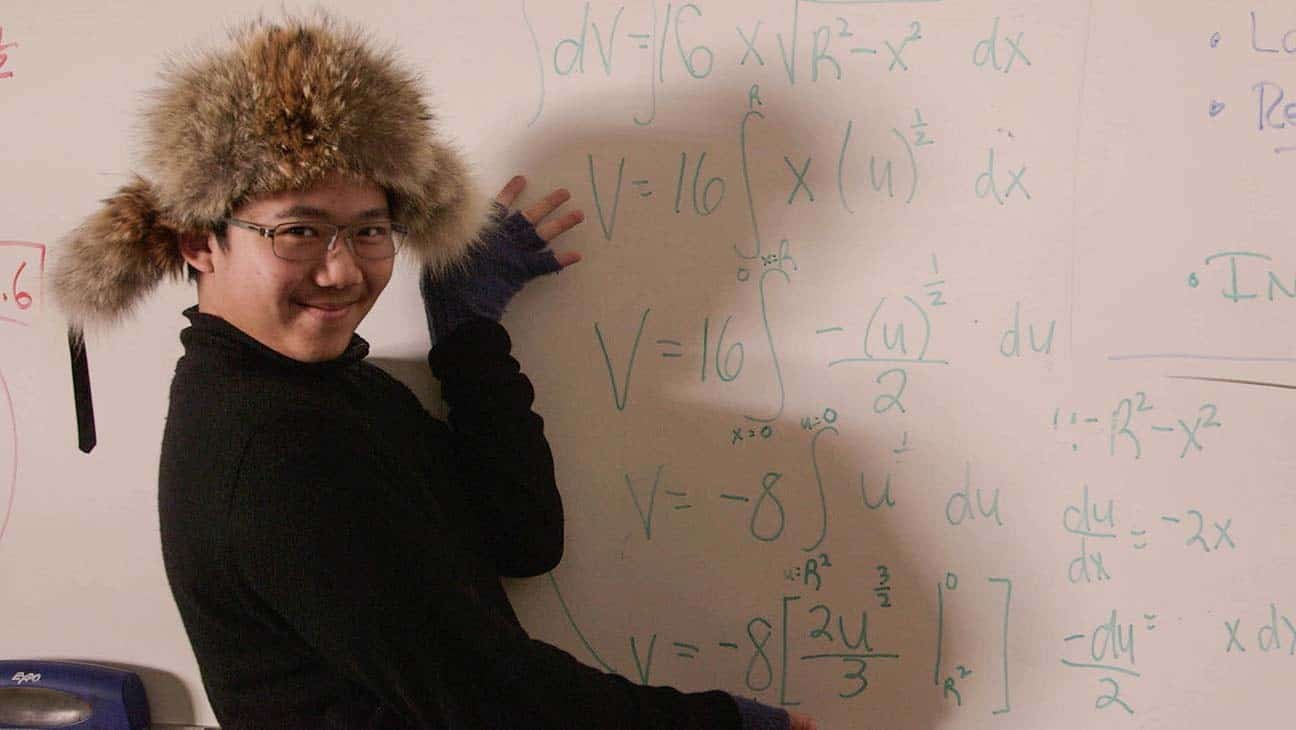
Let's switch gears a little. Tell me about your production process.
We first started filming there in 2015, the semester before school ended. Most of the students we filmed were juniors. We just wanted to seize the opportunity since we knew they would all be seniors. We shot over 300 hours of footage. My producer and cinematographer, Lou Nakasako, basically relieved high school. By the end of the year, we were exhausted; the students worked a lot harder than we did in school. (laughs)
And funding?
Fundraising for an independent documentary takes a really long time. You generally have to shoot on-spec. We had seed money from some amazing organizations like Center for Asian Media (CAAM) and the California Humanities, but we had to fundraise. During the fundraising and editing, we got funded by ITVS (public television funding) – but COVID hit in the middle. I just had to take some time off.
How do you feel about an online premiere?
It's really wonderful and really surreal. The best thing about a festival is that the audiences are just so engaged. It's amazing to share that communally. Ours is a funny film – it's also sad, it takes some Kleenex, but collective laughter is the one of the best medicines — of course right now it can kill you — but in place of that, it's been my own high school reunion. I've had friends from all over the US going to Sundance with me. That wouldn't have happened [without the online premiere]. The Lowell community also attended Sundance from San Francisco.
How did the students react?
They've all seen it. They loved it! I'm always worried as a documentary filmmaker what my subjects will think of the film. They felt like we really captured their high school experience, and some of it that they tried not to remember. Some of it was quite painful.
What are your next steps?
I really hope that [elite universities] and college advisors will take a look at the film to see the repercussions. We're trying to do a big impact campaign with “Try Harder!,” so we're trying to get it out to students and gatekeepers. We want to get people to look at the student journey through both mental health and relationships.
There are a lot of things I'd like to do – but I also want to take a little break. I'm working on some fiction screenplays right now – details TBD. (smiles)


